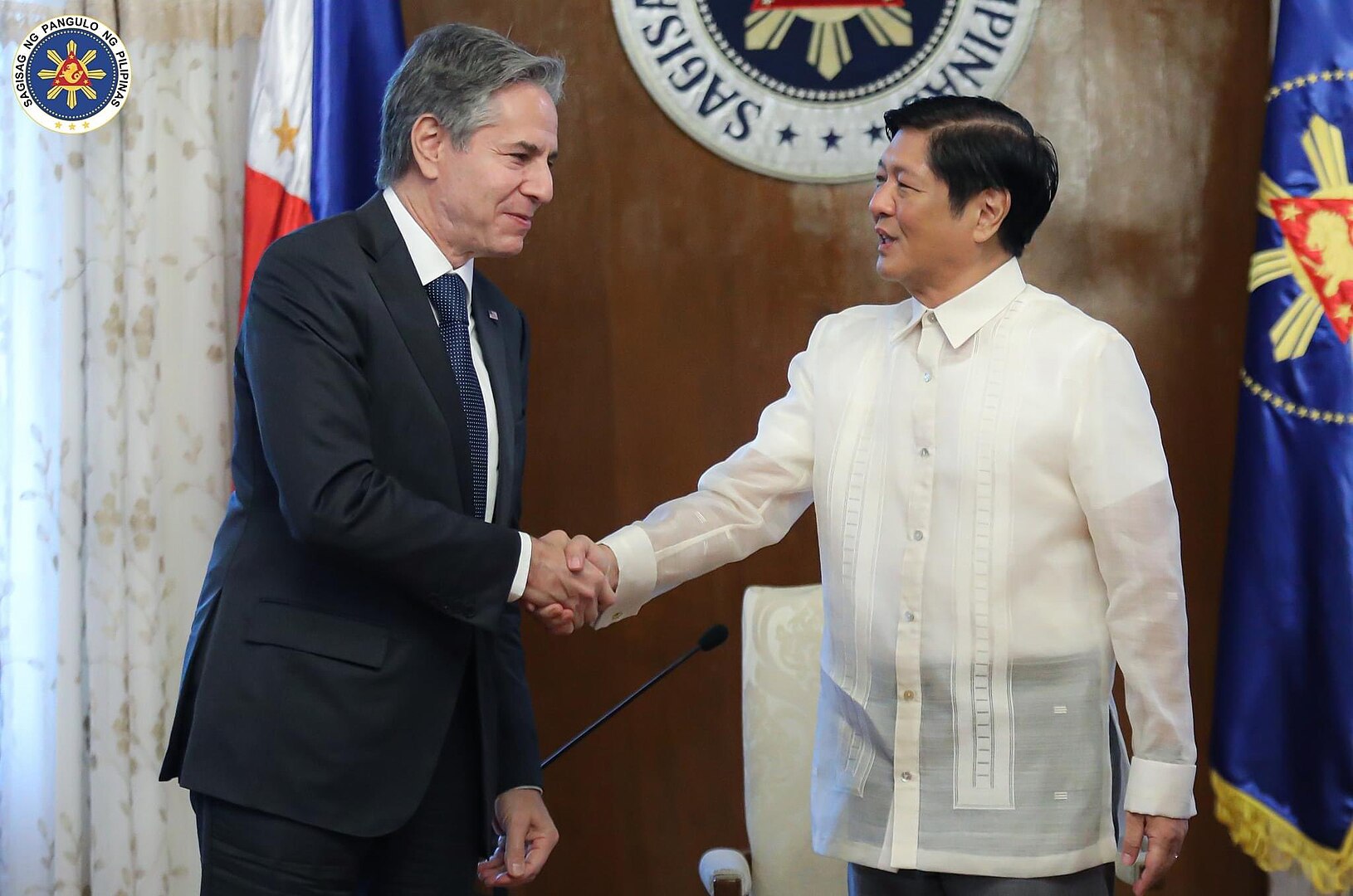News
Blinken visit to reaffirm alliance; economic resiliency high on agenda

FILE: Blinken with Philippine President Bongbong Marcos in Manila on August 6, 2022. (Photo By Office of the President of the Philippines/Wikimedia Commons, Public Domain)
MANILA – Discussions on ways to strengthen the Philippines and the United States’ economic resiliency will be high on the agenda of State Secretary Antony Blinken’s anticipated Manila visit next week, the Department of Foreign Affairs (DFA) said Friday.
The US top diplomat will travel to Manila from March 18 to 19 and meet with President Ferdinand R. Marcos Jr. and Foreign Affairs Secretary Enrique Manalo.
“Among the range of key issues to be tackled, the broadening and deepening of cooperation in the economic sphere will be high on the agenda,” the DFA said.
“Discussions will highlight efforts to promote trade and investments and a common resolve to sustain economic resiliency as an essential component of national security.
”
Manalo and Blinken are expected to focus on clean and renewable energy development, semiconductors, and the digital economy, among others.
This is the second time Blinken is visiting the country, which comes less than a week after the visit of the US Presidential Trade and Investment Mission (PTIM) to the Philippines led by US Secretary of Commerce Gina Raimondo.
During the PTIM visit from March 11 to 12, American companies announced more than USD1 billion of investments in the Philippines.
In a virtual press briefing Thursday, Raimondo said these US companies are committed just as the Philippines makes “necessary changes in the regulatory structure, cutting red tape, (and) being against corruption, being a transparent government.”
The DFA said Manalo and Blinken would also discuss overall bilateral cooperation in the context of regional issues, including peace and stability in the South China Sea.
In a separate readout, the State Department said the visit would reaffirm Washington DC’s “unwavering commitment” to its alliance with Manila.
“The Secretary’s visit will also underscore the importance of our strong bilateral ties, which for 75 years have been critical to advancing our shared vision for a free and open, connected, prosperous, secure, and resilient Indo-Pacific region,” State Department spokesperson Matthew Miller said.





















